Fortress of Plenitude
In the far reaches of Norway, the Svalbard Global Seed Vault acts as an insurance policy against worst-case scenarios by securing the building blocks of our planet’s food supply.
Fortress of Plenitude
In the far reaches of Norway, the Svalbard Global Seed Vault acts as an insurance policy against worst-case scenarios by securing the building blocks of our planet’s food supply.
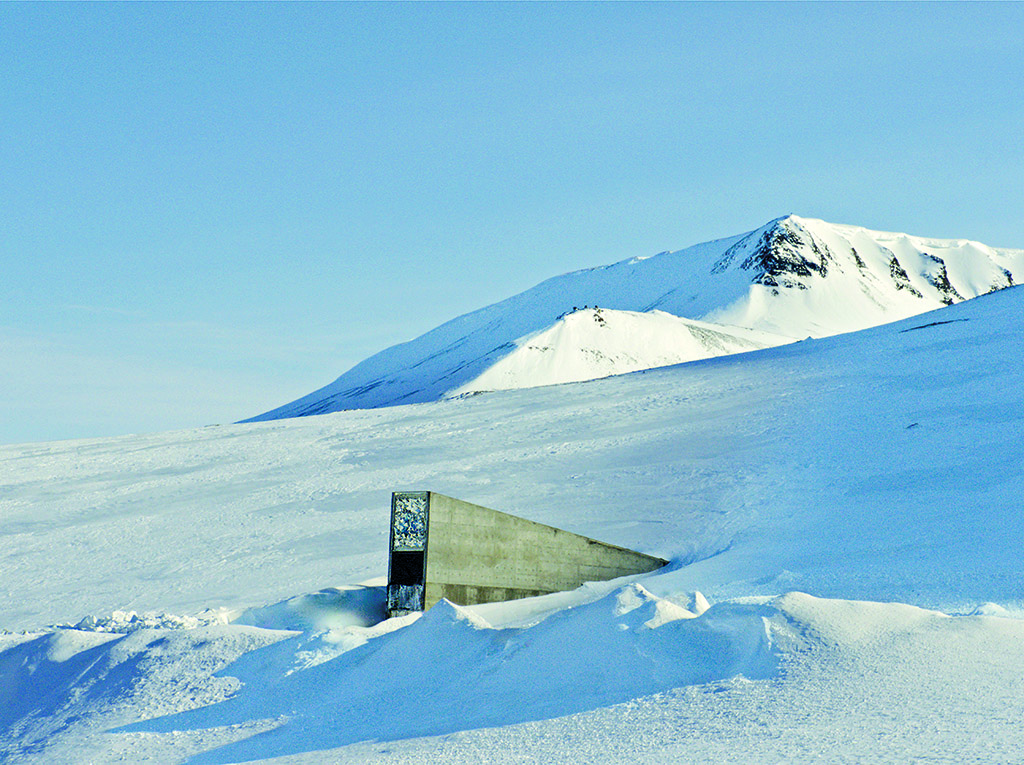
“VISIBILITY WAS LOW, winds were high, and the plane was bouncing and rocking about as it threaded its way through the mountain passes.” So writes agricultural evangelist Cary Fowler in the new book Seeds on Ice, about his initial 2004 visit to the Norwegian island where he ultimately helped establish the Svalbard Global Seed Vault. After two attempts to land, the pilot informed his passengers that he didn’t have enough fuel to try again. “My first trip to Svalbard ended without ever setting foot on it,” Fowler continues. “It was not an auspicious beginning.”
But the Tennessee native, who was given six months to live after being diagnosed with skin cancer four decades ago, isn’t a man who gives up easily. Not only would the now-67-year-old succeed in landing on Svalbard, he’d find a way to surmount the myriad challenges – political, technical, financial – involved in founding the first global seed bank, charged with no less a task than safeguarding the future of humanity.
Four years after that failed descent, the Svalbard Global Seed Vault officially opened for business. The fail-safe structure now houses seed samples from nearly 900,000 varieties of crops (more than half the estimated 1.5 million on the planet), ensuring that the genetic material critical for sustaining us remains protected, regardless of war, natural disaster, rapidly evolving pathogens and pests, and climate change. The seeds are stored at 0°F behind multiple locked doors, further secured by cameras, alarms, and motion-, fire-, and gas-detectors. The facility, financed by the country of Norway and managed by the Nordic Genetic Resource Center (NordGen), holds its collection “in trust” for the international community. Storage is free to depositors – mostly agricultural research centers and national gene banks – who retain ownership of their seeds.
Already, there’s been one withdrawal. As civil war broke out in Syria, the Aleppo-based International Center for Agricultural Research in the Dry Areas (ICARDA) submitted 116,000 varieties of wheat, barley, chickpeas, lentils, and other crops for safekeeping beneath the ice. In September 2015, with ICARDA’s former headquarters in the hands of opposition forces, the organization accessed a portion of its samples, so that researchers in Morocco and Lebanon could reestablish them for future generations.
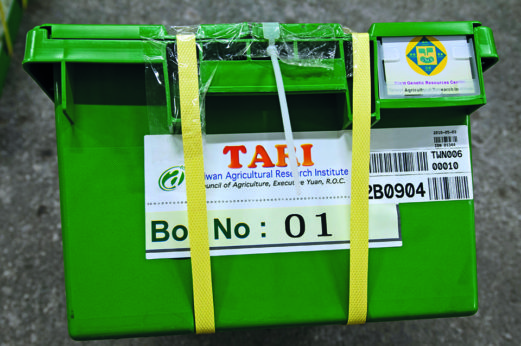
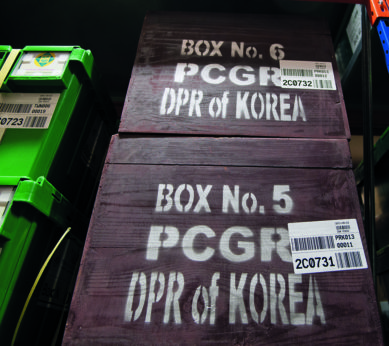
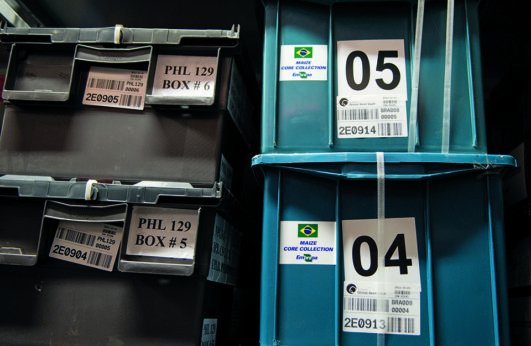
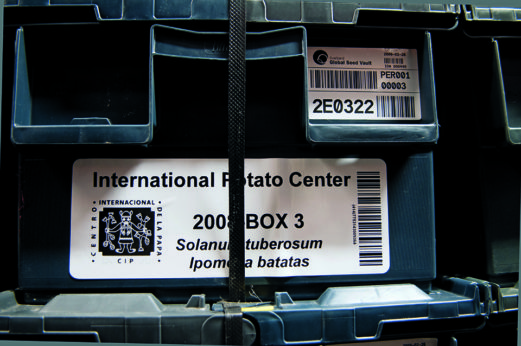
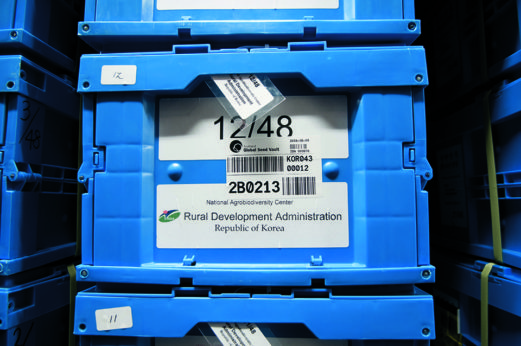
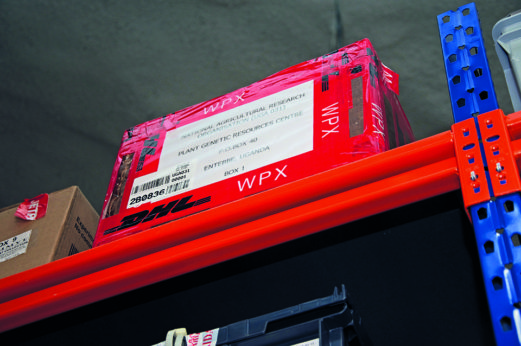
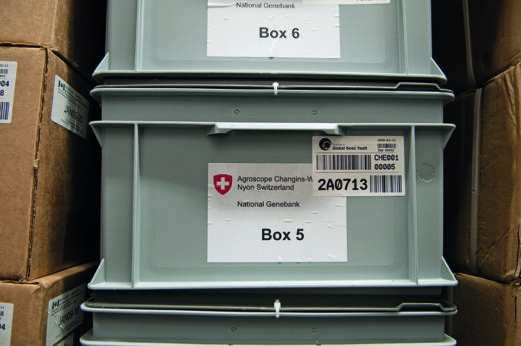
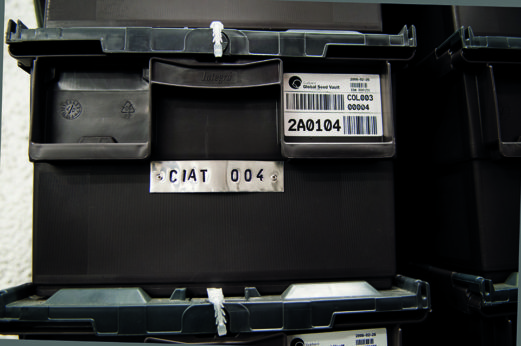
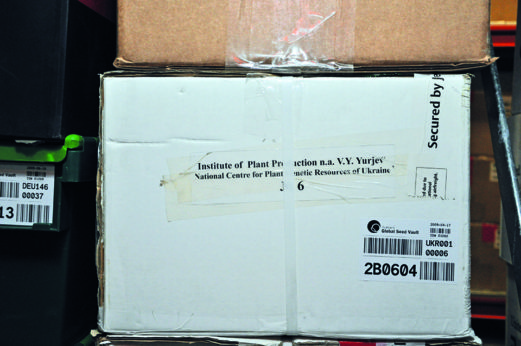
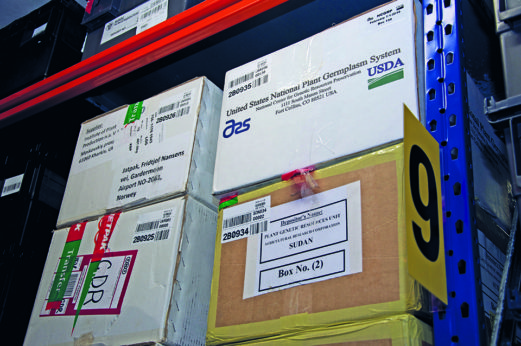
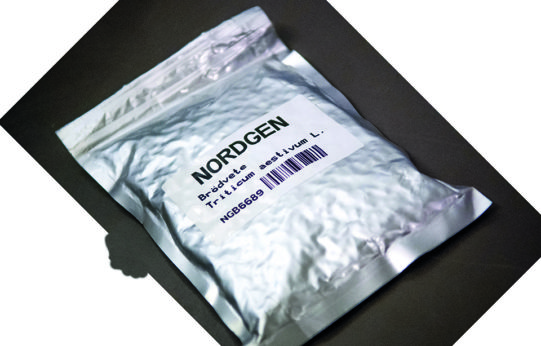
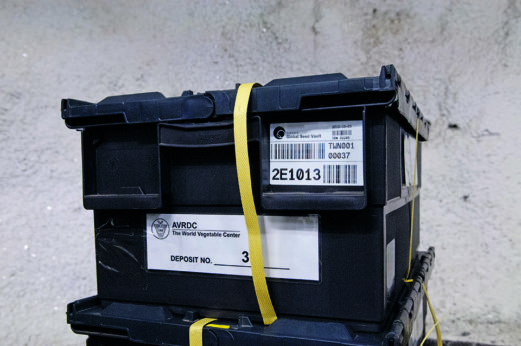
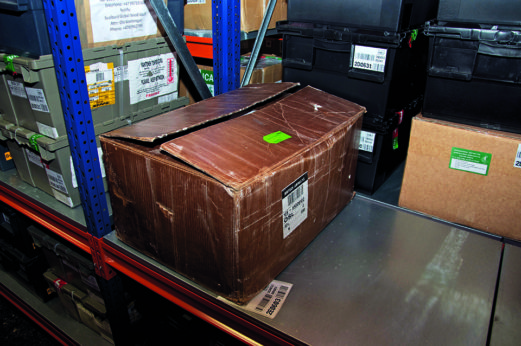
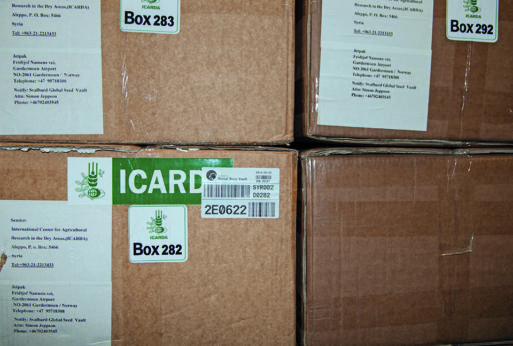
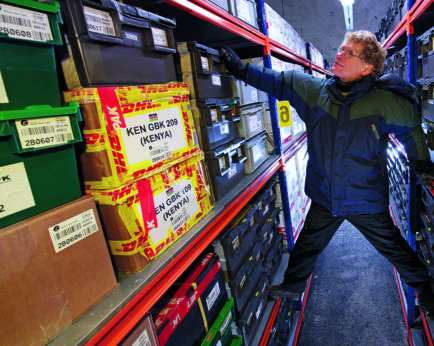
GALLERY ABOVE: Most depositors – agricultural organizations the world over – pack seeds in moisture-proof, airtight foil envelopes (fourth row, center) before sending them to Svalbard. Upon arrival at the vault, each box is affixed with a bar code that tracks precisely where the submissions are stored.
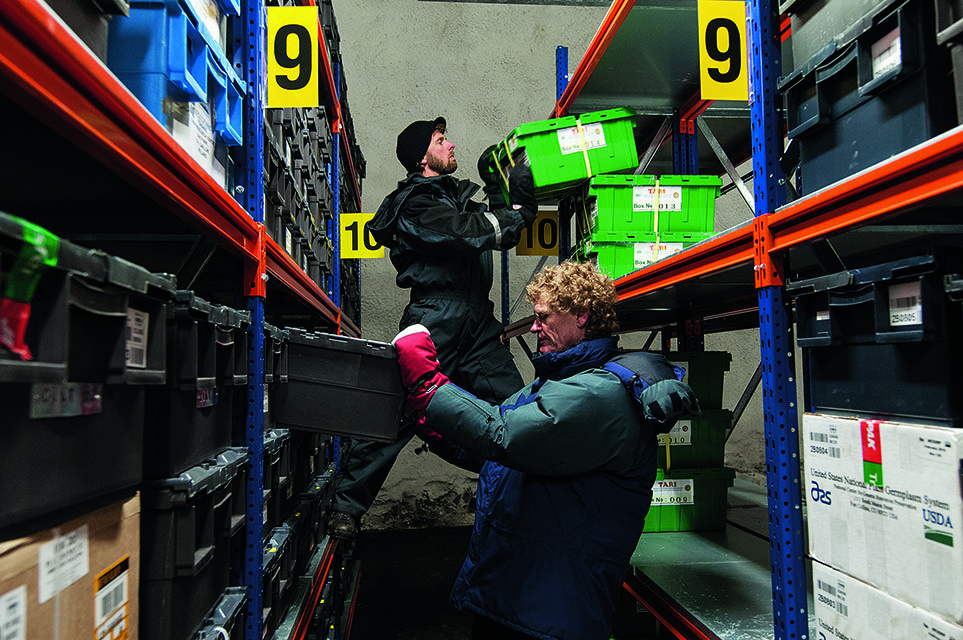
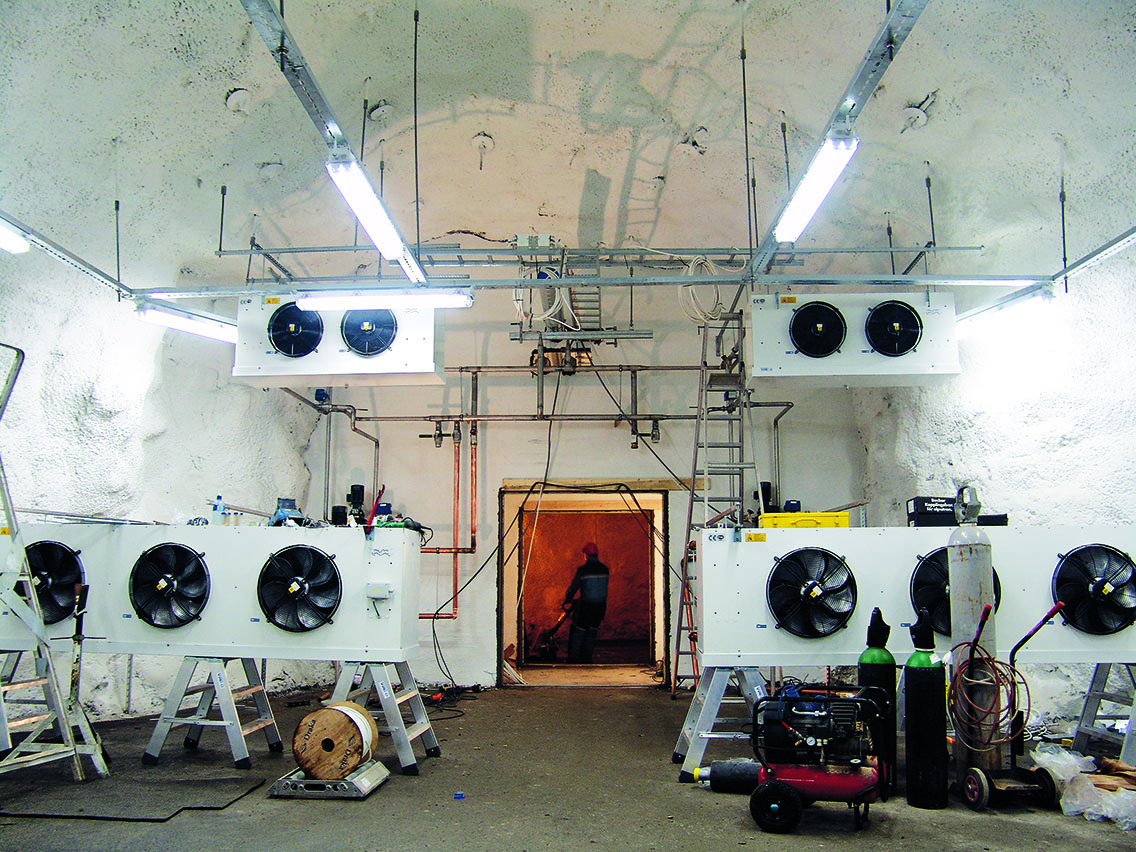
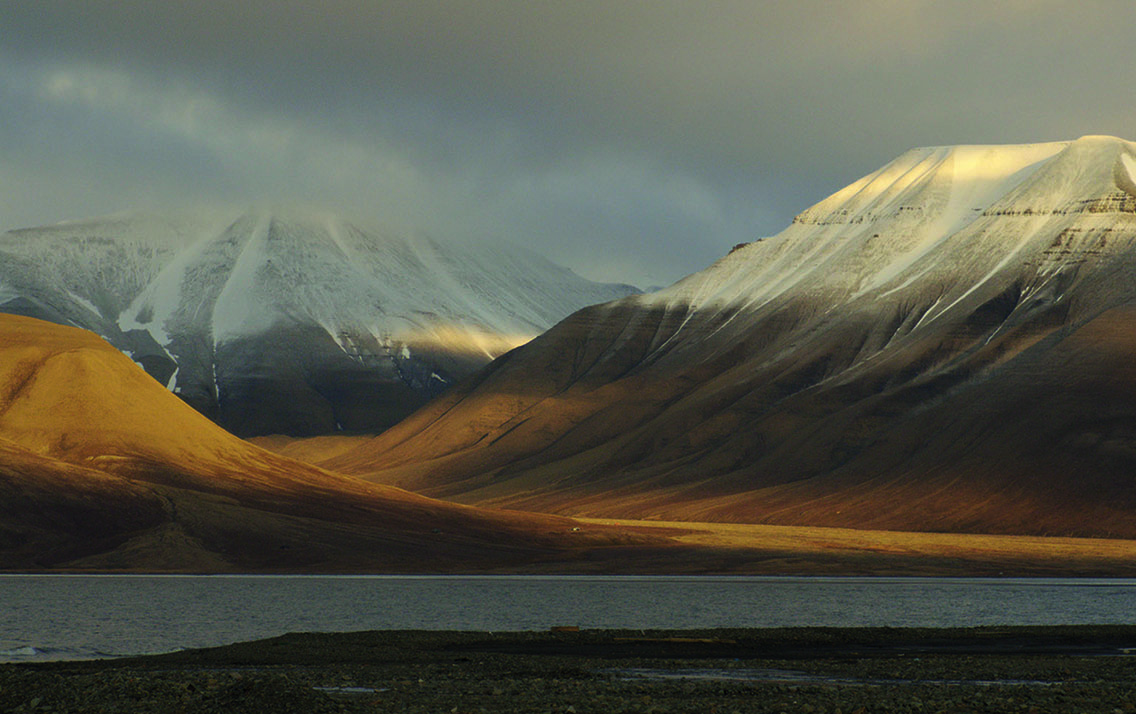
Follow us
This work is licensed under a Creative Commons Attribution-NoDerivatives 4.0 International License.
Want to republish a Modern Farmer story?
We are happy for Modern Farmer stories to be shared, and encourage you to republish our articles for your audience. When doing so, we ask that you follow these guidelines:
Please credit us and our writers
For the author byline, please use “Author Name, Modern Farmer.” At the top of our stories, if on the web, please include this text and link: “This story was originally published by Modern Farmer.”
Please make sure to include a link back to either our home page or the article URL.
At the bottom of the story, please include the following text:
“Modern Farmer is a nonprofit initiative dedicated to raising awareness and catalyzing action at the intersection of food, agriculture, and society. Read more at <link>Modern Farmer</link>.”
Use our widget
We’d like to be able to track our stories, so we ask that if you republish our content, you do so using our widget (located on the left hand side of the article). The HTML code has a built-in tracker that tells us the data and domain where the story was published, as well as view counts.
Check the image requirements
It’s your responsibility to confirm you're licensed to republish images in our articles. Some images, such as those from commercial providers, don't allow their images to be republished without permission or payment. Copyright terms are generally listed in the image caption and attribution. You are welcome to omit our images or substitute with your own. Charts and interactive graphics follow the same rules.
Don’t change too much. Or, ask us first.
Articles must be republished in their entirety. It’s okay to change references to time (“today” to “yesterday”) or location (“Iowa City, IA” to “here”). But please keep everything else the same.
If you feel strongly that a more material edit needs to be made, get in touch with us at [email protected]. We’re happy to discuss it with the original author, but we must have prior approval for changes before publication.
Special cases
Extracts. You may run the first few lines or paragraphs of the article and then say: “Read the full article at Modern Farmer” with a link back to the original article.
Quotes. You may quote authors provided you include a link back to the article URL.
Translations. These require writer approval. To inquire about translation of a Modern Farmer article, contact us at [email protected]
Signed consent / copyright release forms. These are not required, provided you are following these guidelines.
Print. Articles can be republished in print under these same rules, with the exception that you do not need to include the links.
Tag us
When sharing the story on social media, please tag us using the following: - Twitter (@ModFarm) - Facebook (@ModernFarmerMedia) - Instagram (@modfarm)
Use our content respectfully
Modern Farmer is a nonprofit and as such we share our content for free and in good faith in order to reach new audiences. Respectfully,
No selling ads against our stories. It’s okay to put our stories on pages with ads.
Don’t republish our material wholesale, or automatically; you need to select stories to be republished individually.
You have no rights to sell, license, syndicate, or otherwise represent yourself as the authorized owner of our material to any third parties. This means that you cannot actively publish or submit our work for syndication to third party platforms or apps like Apple News or Google News. We understand that publishers cannot fully control when certain third parties automatically summarize or crawl content from publishers’ own sites.
Keep in touch
We want to hear from you if you love Modern Farmer content, have a collaboration idea, or anything else to share. As a nonprofit outlet, we work in service of our community and are always open to comments, feedback, and ideas. Contact us at [email protected].by Jocelyn C. Zuckerman, Modern Farmer
March 13, 2017
Modern Farmer Weekly
Solutions Hub
Innovations, ideas and inspiration. Actionable solutions for a resilient food system.
ExploreExplore other topics
Share With Us
We want to hear from Modern Farmer readers who have thoughtful commentary, actionable solutions, or helpful ideas to share.
SubmitNecessary cookies are absolutely essential for the website to function properly. This category only includes cookies that ensures basic functionalities and security features of the website. These cookies do not store any personal information.
Any cookies that may not be particularly necessary for the website to function and are used specifically to collect user personal data via analytics, ads, other embedded contents are termed as non-necessary cookies.